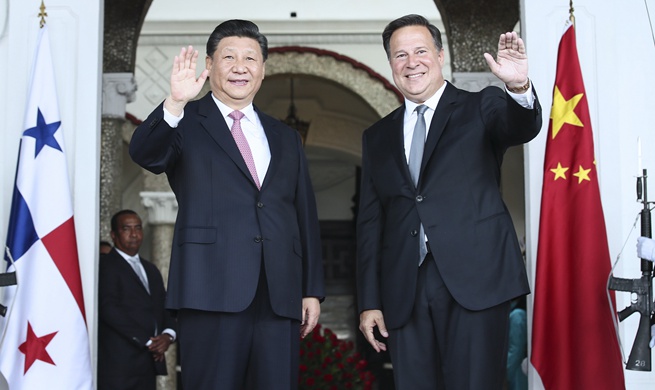ROME, Dec. 5 (Xinhua) -- For Italians, old age has been delayed for a few extra years.
A statement earlier this month from the Rome-based Italian Society of Gerontology and Geriatrics -- its membership is made up of doctors specializing in the elderly -- said that in Italy a person should be considered "old" only after their 75th birthday.
The average life span in Italy has risen steadily in recent generations. The health of Italian in their old age has improved as well.
Life expectancy for Italian men is now above 82 years, and it is above 86 years for women, the society said. That compares to 83 and 77, respectively, for the European Union as a whole and 73 and 67 worldwide, according to United Nations figures.
"Today, being 50 or 60 or 70 years old does not mean the same thing it meant in the 1970s or 1980s," Massimiliano Valerii, general manager of Censis, a socio-economic research institute, told Xinhua. "People are living much longer and are much healthier until later in life. You can no longer say that someone who is 60 or 65 years old is elderly."
The study from the Italian Society of Gerontology and Geriatrics does not have any legal weight, nor does it require the government to take any specific action. But it does reflect a larger trend in Italy: the longer life spans and falling birthrate has pushed the average age higher.
Italy now has the second oldest median age in the world, behind only Japan, a country with similar demographic trends.
Italy saw just 458,000 births in 2017, the third consecutive year with fewer than 500,000 births, Valerii said. He added last year's figure for birth's is Italy's lowest level ever, dating back to the 1861 unification of the country -- a time when the country's population was just 22 million, a little more than a third of today's population of around 60 million.
"As the average age of a country increases it creates many problems, ranging from higher pension costs paid by a smaller group of workers to a lack of innovation and modern know-how in the economy," Maria Silvana Salvini, professor of demographics at the University of Florence, said in an interview.
"It is a good sign that people are healthier and living longer," she said. "But combined with a declining birthrate, it is a big problem."
Italy has been in the grip of an economic malaise for more than a decade, and with the average Italian living longer and in better health, one plan -- the seven-year-old Fornero Reform -- seeks to gradually raise the country's minimum retirement age. The plan would expand the workforce and delay access to government pensions. But the current government has criticized the plan and it could be amended as soon as next year.
According to Raffaele Antonelli Incalzi, president of the based Italian Society of Gerontology and Geriatrics, the group that conducted the research that led to a reclassification of what constitute "old age," the situation in Italy will soon become drastic.
"By 2040, which is only a little more than 20 years away, we will be in an unmanageable situation," Antonelli Incalzi told Xinhua. "We have a huge imbalance between the number of elderly and the number of young people who will take care of them."













